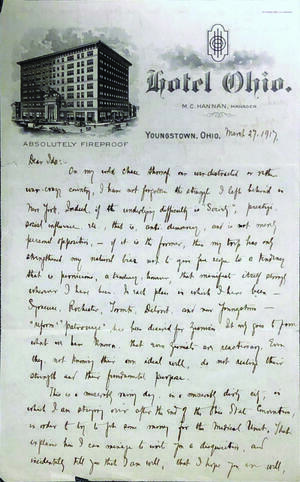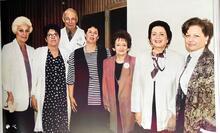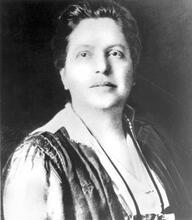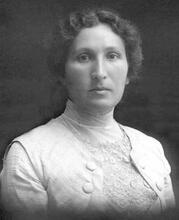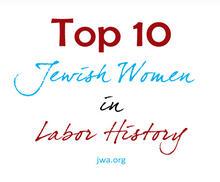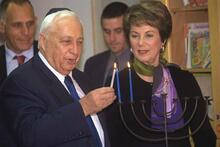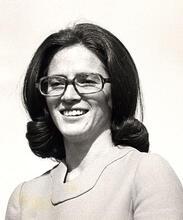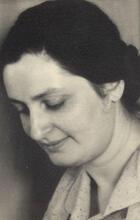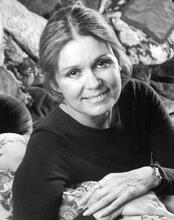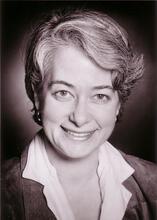Ida Espen Guggenheimer
Ida Espen Guggenheimer supported Zionism, civil rights, and feminism throughout her life, from hosting talks on birth control to supporting political prisoners. During the 1930s and 1940s she worked with the League of Women Voters, the Women’s Trade Union League, the Women’s International League for Peace and Freedom, and the American Civil Liberties Union, among others. Through the ACLU, she held fundraisers at her home for the Bail Fund for Political Prisoners and hosted Margaret Sanger for talks on birth control. During the Holocaust, Guggenheimer not only sponsored countless refugees, but offered her summer home in Canada as a way station for those who had to leave the United States in order to secure a visa for reentry.
Ida Espen Guggenheimer, a woman with a deeply ingrained sense of social awareness, was an early Zionist, a feminist, and a civil rights activist.
Early Life
Born on December 8, 1866, in Philadelphia, Pennsylvania, she was the oldest child of Jacob and Fannie (Bachman) Espen. She had one brother, Frank, and two sisters, Hannah and Sophie. Her father and his brother were importers of lace. She was educated at the Friends School in Philadelphia and attended school in Dresden, Germany, when her family traveled in Europe.
In 1895, she married Jay Caesar Guggenheimer, an attorney just starting a New York law practice. He died in 1932. Their only child, Clara, was born in 1897.
Although there are no indications of Jewish observance in her family, Guggenheimer was a close friend of Henrietta Szold and was for some years active in the Zionist movement. She organized and raised funds to establish medical units and, subsequently, the Hadassah Hospital in what was then Palestine. At one time, around 1915, she was the president of Hadassah’s New York chapter.
Career and Legacy
Guggenheimer became increasingly radical in her views as time went on and was involved in the suffrage and trade union movements. She marched frequently in suffrage parades and on picket lines in support of such strikers as the employees of May’s Department Store and laundry workers. She was active in the Women’s Trade Union League, of which she was a board member in the late 1930s and early 1940s, the League of Women Voters, the League of Women Shoppers, the Women’s International League for Peace and Freedom, the Southern Conference for Educational Welfare (a group committed to establishing racial equality), Consumers Union, and the American Civil Liberties Union.
In connection with her work with Roger Baldwin of the Civil Liberties Union and Eleanor Roosevelt, Guggenheimer held many meetings at her home to raise money to establish the Bail Fund for Political Prisoners. She also hosted gatherings with Margaret Sanger to promote the cause of birth control.
Her interest in furthering the rights of blacks and other minorities was apparent in the support she gave to the trial of the Scottsboro boys, to Angelo Herndon, Sacco and Vanzetti, Tom Mooney, and numerous others. The author Ralph Ellison was her protégé, and his book The Invisible Man is dedicated to her. In her later years she took an active role in the American Labor Party.
During the period of Hitler’s oppression of German Jewry, Guggenheimer sponsored countless refugees. Her summer home in Canada served as a halfway house for many who had to leave the United States in order to secure a visa for reentry.
A person of boundless energy and intellectual curiosity, she read widely and attended the theater, concerts, and films. She and her husband were instrumental in furthering the education of many young musicians and assisting struggling artists. She was a friend of the French artist Jacques Villon and owned an extensive collection of his works.
Ida Espen Guggenheimer died in New York, on August 29, 1959, at age ninety-three.
AJYB 62:450.
Baum, Judith. “Bio-Bibliography of Ida Espen Guggenheimer.” Research project, May 1976.
Bernard, Martha Binswanger [granddaughter]. Telephone interview with author, August 28, 1996.
Binswanger, Clara G. Biographical notes on Ida Espen Guggenheimer, c. 1959.
Guggenheimer, Ida Espen. Papers. Hadassah Archives, NYC.
Hadassah. New York Chapter Questionnaire for Annual Report (May 1918), and Hadassah Bulletin (May 1915, August 1917), and Hadassah Newsletter (May 1921).
Meyer, Charles H. Memorial of Jay Caesar Guggenheimer, c. 1932.
Obituary. NYTimes, August 30, 1959, 82:4.

